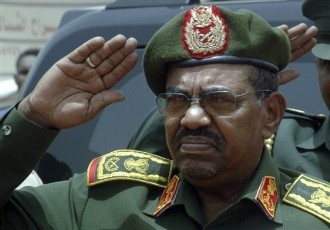Verdict in Sudan’s coup attempt trial imminent: source
March 30, 2013 (KHARTOUM) – A military tribunal conducting trial of army officers charged with involvement in a coup attempt thwarted last year is expected to hand down sentences on Sunday, a source told Sudan Tribune.

The source further hinted that two of the army officer will be cleared after investigations showed they had no role in the coup attempt. Others may receive jail sentences ranging from six months to a year, the source added.
Non-army figures arrested in connection with the coup including former director of the National Intelligence and Security Services (NISS) Salah Gosh have not been part of the trial and it is not clear if they will ever be prosecuted.
Last November, Sudanese government arrested 13 military high ranking officers and former officials all of who are pro-regime elements including Brigadier General Mohamed Ibrahim Abdel-Galil known as Wad Ibrahim who at one point served on president Omer Hassan al-Bashir security detail.
This month a source told Sudan Tribune that Abdel-Galil made a forceful plea to the court, admitting his involvement in the coup before the judge.
“Yes, I was going to overthrow the government, and if I am released, I am going to do it again. You have two options: either to execute me or release me” he was quoted as telling the judge.
This month Bashir said in an interview that the suspects had no external links and that the government is waiting on the trial to conclude leading many to believe that he is planning a presidential pardon.
Prior to that the government made conflicting statements on the coup attempt and officials including presidential assistant Nafie Ali Nafie said that the opposition National Umma Party (NUP) was involved in the coup.
However no opposition members were charged with involvement as of yet.
Some analysts have linked the coup to the apparent power struggle within the ruling party’s circles and the Islamic base about issues ranging from corruption, lack of new blood in leadership positions and general climate of repression in the country.
Bashir came to power in a coup in 1989 backed by the National Islamic Front (NIF) which was led by Hassan al-Turabi who is now one of the fiercest critics of the regime.
His first years in power were marked by unusual ruthlessness and harsh crackdown on political opposition amid allegations of widespread torture carried out by security forces.
In 1990 Khartoum executed 28 army officers hours after being accused of attempting to overthrow the Bashir government. They were executed by firing squad after a summary court-martial.
(ST)
